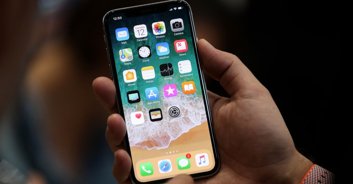Apple is a company which prides itself on its own reputation and markets its products based on the infallibility of its operating system. Consumers are confident that buying from a trusted brand will mean that their expensive machine won't break down or glitch out (or at least, not while it's in warranty still lasts). Despite Apple's dominance of the market however, the end of 2017 was a bad year for their software engineers, after a series of critical bugs managed to slip through their iOS and Mac OS system updates.
First of all, a critical security error for Mac OS High Sierra meant that anyone who could physically access a Mac or MacBook could potentially gain system administrator privileges, without even entering the right password! But even worse was when the patch, released a mere 24 hours after the initial error was discovered, turned out to be as buggy as the original code. Mac users who hadn't upgraded from original version of High Sierra to the 10.13.1 update, but who had installed Apple’s patch, were still left with critically vulnerable computers that anyone could access.
Later, in December of 2017, another iOS 11 bug forced certain iPhones to glitch out after their internal clock hit 12:15 am. Apple later hurriedly released a fix for this issue as well, and for a while it seemed like all was well again. But now a new bug has arisen, which can cause Apple products to crash if they receive a message which happens to contain a specific symbol.
The glitch in Apple's new software update means that users are now capable of sending a "text bomb" via messaging apps, which causes critical problems for their messaging app when a single character from Telugu alphabet appears on it. Telugu is a language mostly spoken in the south-east of India, the official language of the Andhra Pradesh and Telangana states, spoken by approximately 70 million people. The offending Telugu letter isn't particularly common in Telugu speech: but unfortunately, the unique vocal sound it represents can't be replicated by another character, which has meant that messaging in certain parts of India has become extremely tricky, and even trickier for clueless foreigners who have no idea that it is bad news.
The bug reportedly affects iPads, iPhones, Macs, Macbooks, Apple Watches and Apple TVs which run the most up-to-date version of their operating software. Apparently, opening a message which contains the Telugu character immediately forces the relevant messaging app, such as WhatsApp, Gmail, Facebook Messenger and iMessage, to become unresponsive, and any other apps which might happen to receive the character will function irregularly until it's removed. The error not only causes Springboard crashes, but also prevents you from opening the app which received the character up again, since the app will be stuck continually trying to load the message. In the case of messaging apps, this usually necessitates that users delete their entire conversation history with the person who sent the offending character.
The bug was first identified by Italian tech blog Mobile World on February 14, before a number of Apple users later confirmed the legitimacy of the error on social media. Twitter was soon inundated with complaints from people who had been messaged by trolls and duped into having their phone crash on them.
If you've been hit by the bug in question and are now unable to open messenger to delete it, then don't despair: there are a few clever fixes out there. Firstly, you can have a friend send you rescue message in a different thread. It doesn't matter what they send you, anything will do. If you're on your device's home page and receive a notification, then tapping or clicking on it will allow you to get back to your list of recorded chats. Delete the entire thread which the troublesome the Telugu character is contained in and your device should operate normally again.
Alternatively, you can also attempt to solve the issue by installing the public iOS 11.3 beta, which apparently isn't vulnerable to this nasty character bug. If you installing the beta software, then you won't experience the glitch in any of your apps; which I'm sure will come as a relief to any Teluga speakers out there.
Apple has since acknowledged the existence of the bug and claims that iOS update 11.2.6. will fix the issue. However, if past misdemeanours are anything to go by, it may well persist. Furthermore, it remains to be seen whether or not the various updates and patches will restore faith in the corporation - especially after it was marred by the recent confirmation of a conspiracy theory relating to iPhone battery life.

